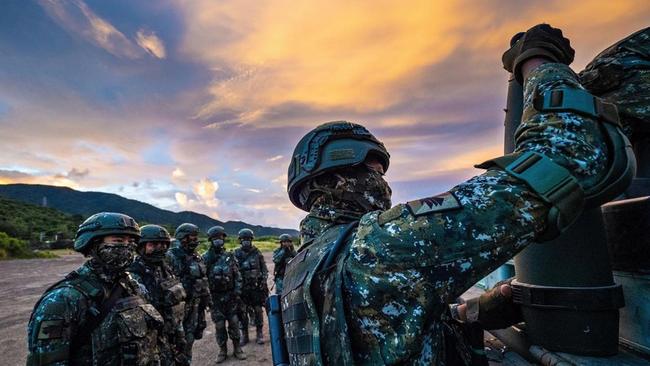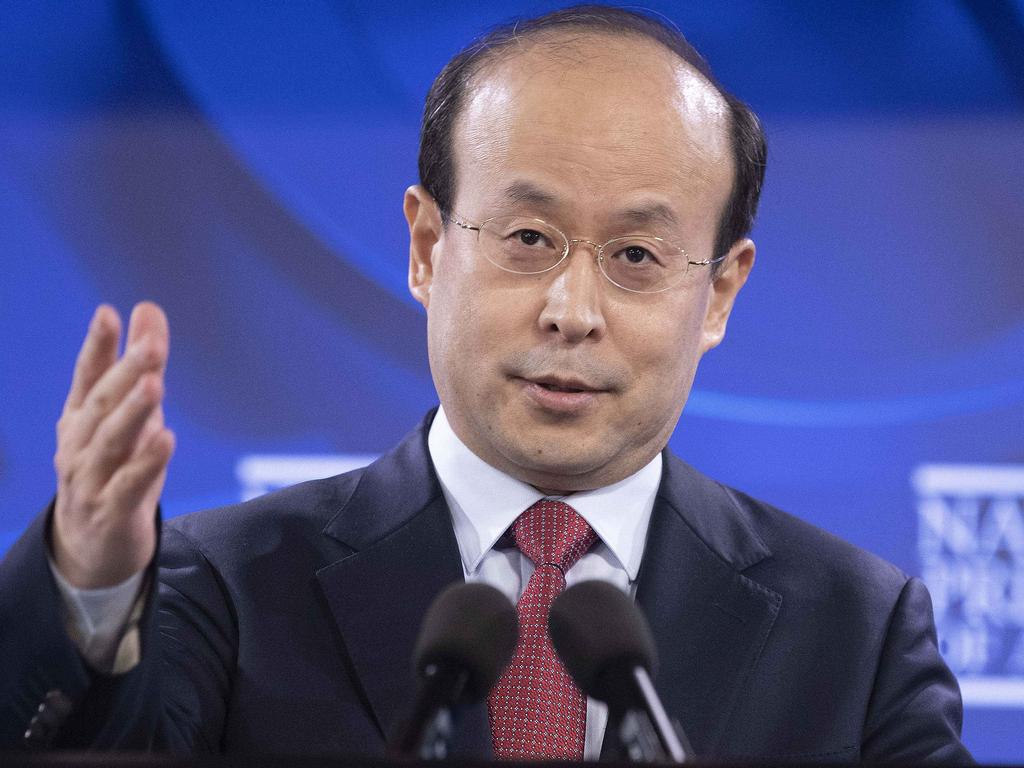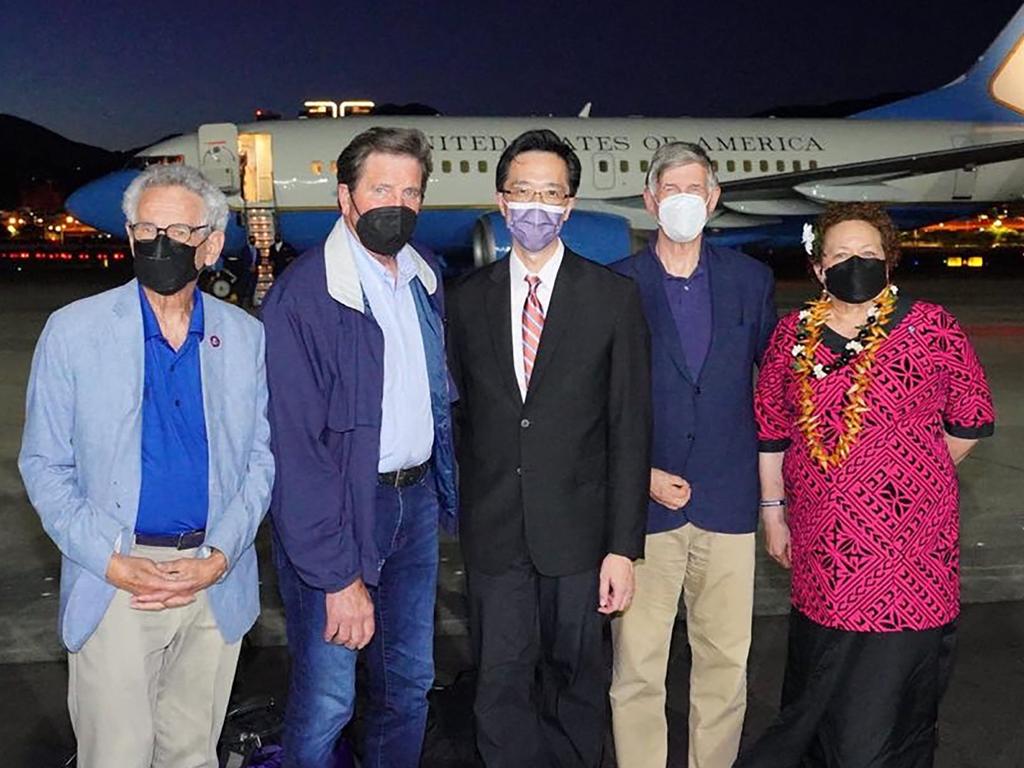Our task: avoid the perils of the Taiwan trap

UN Secretary-General Antonio Guterres has warned that “humanity is just one misunderstanding, one miscalculation away from nuclear annihilation”.
These are dangerous times. The Australian government can do little to shape any of these great events. What it can do, however, is to make a measured, objective assessment of our national interest and ensure we pursue it to the limit.
In 2014 President Xi Jinping denied that China was seeking regional or global hegemony, saying it was “not in the DNA of this country given our long historical and cultural background … We all need to work together to avoid the Thucydides Trap – destructive tensions between an emerging power and established powers … Our aim is to foster a new model of major country relations.”
A little later, Xi also told president Barack Obama that China had no intention of militarising the reefs and islands he had annexed in the South China Sea.
Yet much has changed in the past few years. The disputed islands now support substantial military bases with extensive missile batteries. The recent speech by the Chinese ambassador left no room for doubt that China is seeking to be the dominant power, at least in the Asia-Pacific.

American attitudes have hardened as well. From a position where the US at first facilitated and welcomed China’s economic development, the emergence of a strategic contest with China has led to “containment” appearing in the American lexicon. There is a growing sentiment in the US in favour of abandoning the “one China” policy and strategic ambiguity, and recognising Taiwan as an independent democratic state.
While a war between the US and China would be devastating in its global impact, it could be an existential disaster for Australia if we became involved. Win or lose, Australia could provide the meat in the sandwich of the Thucydides Trap.
Peter Dutton’s remark as defence minister that it was “inconceivable” that Australia would not follow the US into a war with China was the height of irresponsibility. It came from a tired government whose electoral hopes seemed to rest on the idea that beating up on China served its domestic political interest. Risibly, prime minister Scott Morrison even warned China not to “cross a red line”.
Australia was the first country to ban Huawei and, with no wider consultation, went out in front of the rest of the world to call for an inquiry into the origins of Covid-19. China responded by punishing Australia more than any other country.
No doubt we felt a sense of pride when the Americans told us they “had our back”, but at the same time US companies were taking over the markets we had been forced to vacate. None of this affected Australia’s willingness to go out in front of the pack in poking the dragon.
In rediscovering our national interest, perhaps the first thing Australia needs to do is emphasise its policy of maintaining the status quo in terms of Taiwan.

Not only does this mean that China should not attempt to take Taiwan by force, but the US should also reaffirm its “one China” policy (which China sees as the basis of its agreement with president Richard Nixon in 1972) and its posture of strategic ambiguity in terms of defending Taiwan. The rationale for this is quite simple. If either side overturns the status quo in these areas, the risk of war between the top two great powers becomes even greater.
Arguably, if a kinetic conflict did erupt between the US and China, the risk of a nuclear war would be higher than at any time since the atom bomb devastated Nagasaki. Once it embarked on a war to take Taiwan, it is unlikely that China would succumb to nuclear blackmail by the US.
The issue is so important for China that, as strategic experts such as Hugh White and Graham Allison suggest, it would be willing to risk nuclear war. On the other hand, if the US chose to provide military support to Taiwan, it might well be able to win the ensuing war only by recourse to nuclear weapons. The US would face profound military impediments to prevailing in a conflict with China.
Its fundamental problem is that it could never defeat China in a conventional war. To achieve that would require a land invasion and an inconceivably large expeditionary force to defeat the million-strong People’s Liberation Army on the mainland. Clearly this would be an impossible task in terms of logistics, if nothing else.
But the US also would face daunting complications in a maritime conflict centred on the Taiwan Strait. In fact, Allison quotes the former deputy secretary of defence saying that of 18 war games in conflicts limited to Taiwan, the US has not prevailed in one single simulation.
Because of China’s armoury of advanced ballistic and hypersonic missiles, the US Navy would be taking a substantial risk if it deployed its battle groups anywhere near the Taiwan Strait, as it did successfully in 1996.
Yet its enormous aircraft carriers and their escorts lie at the heart of US maritime power. Their absence would severely limit the military hardware the US could bring to the fight.
What would the US do if it went to war with China and lost, say, two aircraft carriers and several destroyers and other warships? Defeat would be staring America in the face. Thousands of US service personnel would already be dead. Americans would be outraged and the administration would be severely compromised. But if domestic politics meant they couldn’t withdraw, the only option might be to escalate the conflict.
Turning to China, suppose it mounted an invasion of Taiwan – an extremely challenging operation. There is no indication the PLA has developed the extensive amphibious capability required for such a mission. The US would have two significant advantages.
First, it would likely have excellent early warning of any invasion of Taiwan and know the exact disposition of the PLA forces. Second, it could rely heavily on its other naval advantage, the potency of its submarine force. Conceivably, this could create such destruction in the invasion fleet that China would have to abort the operation or to escalate the conflict to a nuclear war.
The Australian Defence Force is even less well equipped for a maritime conflict with a great power than it was in 1939. Australia could bring little of value – perhaps two conventional submarines – to the fight. In return, being cognisant of Sun Tzu’s aphorism – “avoid what is strong and strike at what is weak” – if Australia joined the conflict we might well attract missile attacks on the homeland that could become unimaginably worse if nuclear escalation were to follow.
In stating that it is “inconceivable” that Australia would not follow the US into a war with China, we have effectively become America’s tethered goat. While there is no suggestion we should jettison ANZUS, Australia needs to become much more willing to assert its longer-term national interest. Embarking on a war with China would do nothing to help Australia secure our future in the Asia-Pacific.
Again, we would be seeking security from Asia rather than in Asia. China is here to stay as a great power in this volatile region we both call home.
To survive and prosper, we need to develop a mutually acceptable modus vivendi. After all, while America can check out any time it likes, we can never leave.
Our most important task, then, is to persuade the Americans not to go to war over Taiwan. If they do, we must privately advise that Australia will not provide military support. At the same time, China needs to understand the magnitude of the economic and diplomatic consequences it would suffer should it decide to take Taiwan by force. As a matter of urgency, both sides need to build some off-ramps along the road to war and avoid the perils of the Thucydides Trap.
Michael Keating was secretary of three federal departments, including Prime Minister and Cabinet. Jon Stanford worked with him as a division head in PM&C.







In his address to the National Press Club in Canberra this month, Chinese ambassador to Australia Xiao Qian left no room for wondering. China was going to annex Taiwan, by force if necessary. While the US retains its official policy of strategic ambiguity, President Joe Biden has stated three times that America would defend Taiwan if it were attacked. All the while Russia is threatening the use of nuclear weapons in its war with Ukraine.